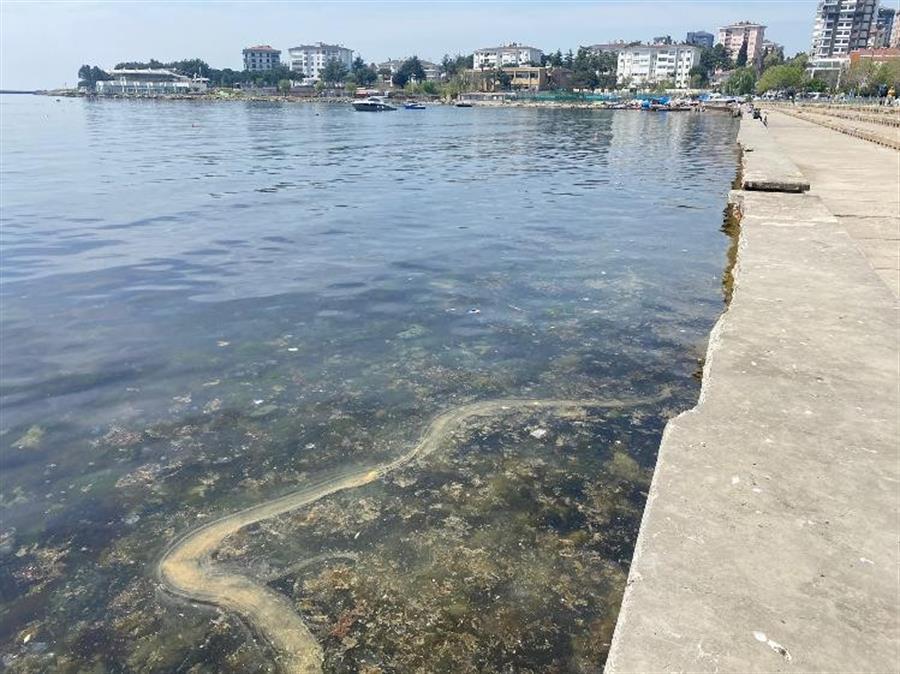
The danger of mucilage, which invaded and heavily affected the marine ecosystem of the Marmara Sea last summer, may return, as blocks of a new form of sea snot have started to appear off the coasts of Istanbul, a Turkish expert has warned.
“Scientifically, there are 10 types of mucilage. The one we saw off Istanbul is what we call cream-like mucilage,” Mustafa Sarı, the dean of the Bandırma Onyedi Eylül University’s the Maritime Faculty, said on April 26.
Mucilage is a jelly-like layer of slime that develops on the surface of the water due to the excessive proliferation of microscopic plants called phytoplankton, threatening the marine biome gravely.
Surfacing on the Marmara Sea in May 2021 and invading a large area in June the same year, the mucilage alarmed marine biologists, environmentalists, and eventually, officials. Ankara announced a 22-point action plan to clear the surging sea snot on June 6, 2021.
“We said before that mucilage can be back again. Unfortunately, it is seen now on some parts of Marmara Sea,” Sarı said.
The photos taken by drones and shared on social media platforms show blocks of “cream-like mucilage” off the shores of Beşiktaş and Kadıköy districts and also the Princes' Islands.
“It would be wrong to wait for changes in results unless we sweep the causes. Three things trigger the formation of mucilage, high water surface temperature, pollution sources and original structure of the Marmara Sea.”
Sarı pointed out that there is a difference in the formation of this year’s mucilage.
“Last year, the mucilage occurred on the water column, then rose to the surface. This year, the mucilage did not form on the water column,” he said. “The Marmara Sea has no time. We need national campaigns to protect it. People living along the coasts of the Marmara Sea must participate in protection efforts.”
His final warning is that more “mucilage can be back” as the pollution load on the sea has not changed and is the same as the last year’s.
Mustafa Öztürk, another professor, said that the Marmara Sea started “vomiting mucilage,” while examining the drone photos.
“The sea says, ‘I am polluted.’ If the pollution load continues, the sea will be oxygen-free, and the mucilage may return to the Golden Horn gradually,” he warned.